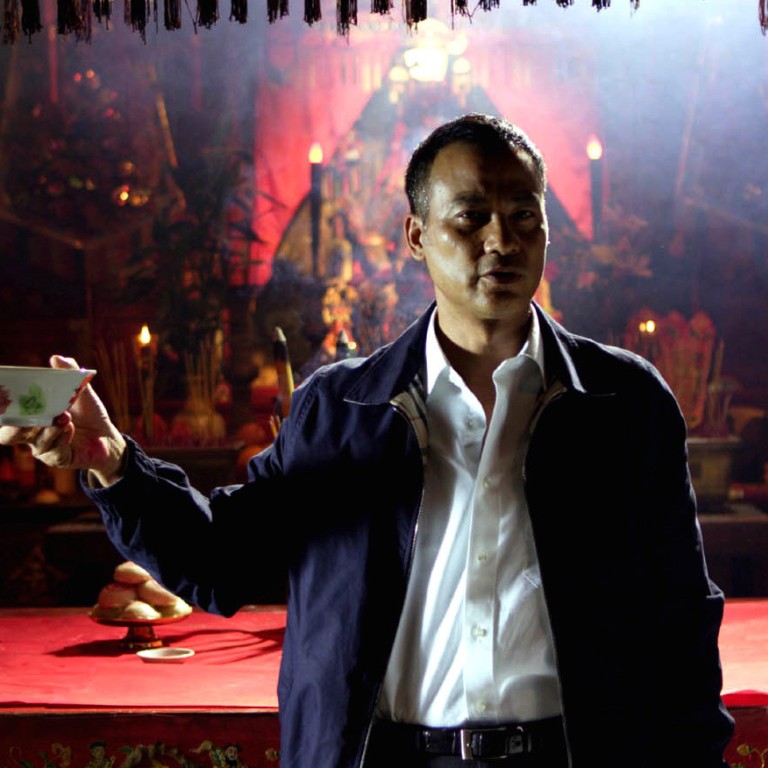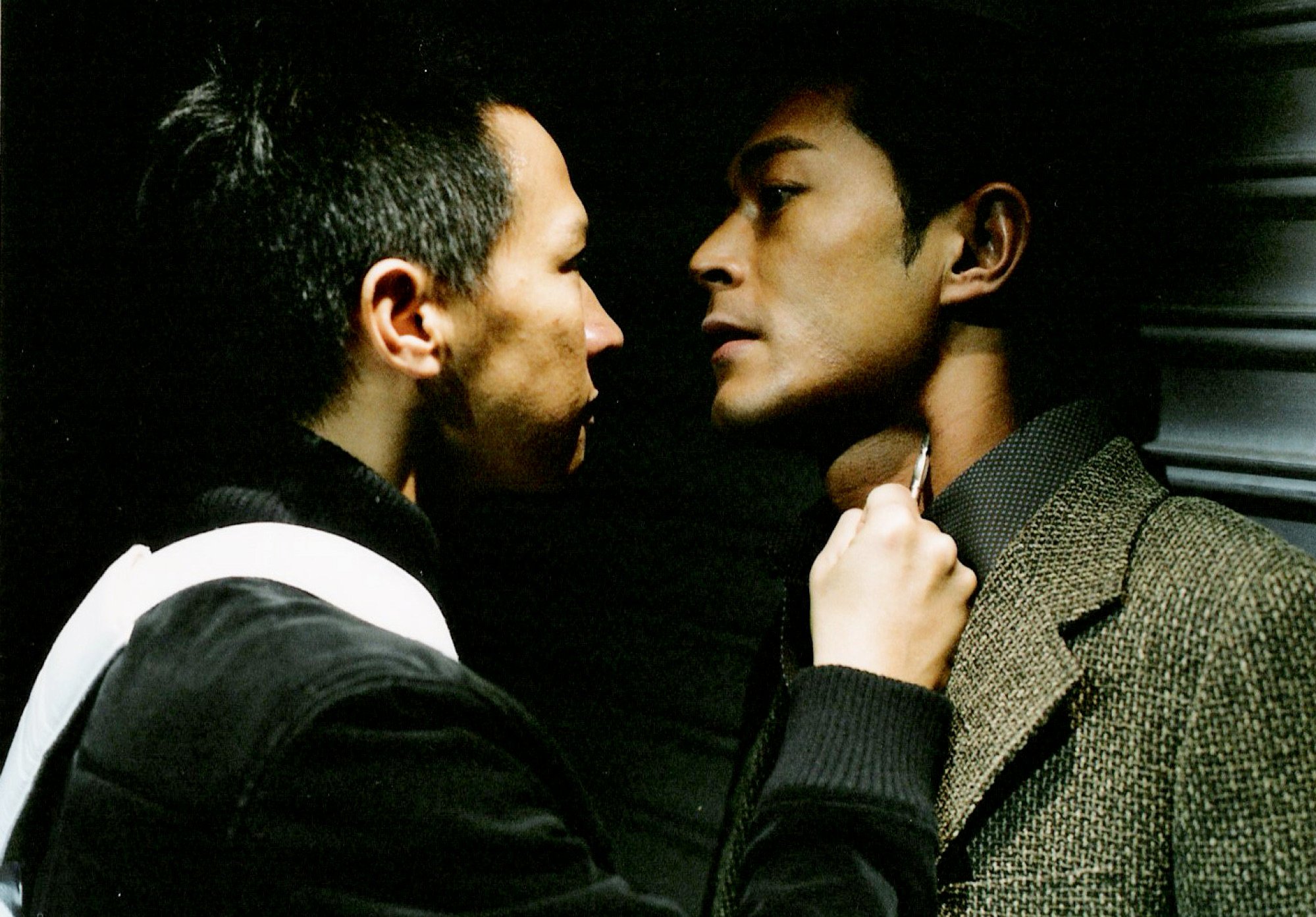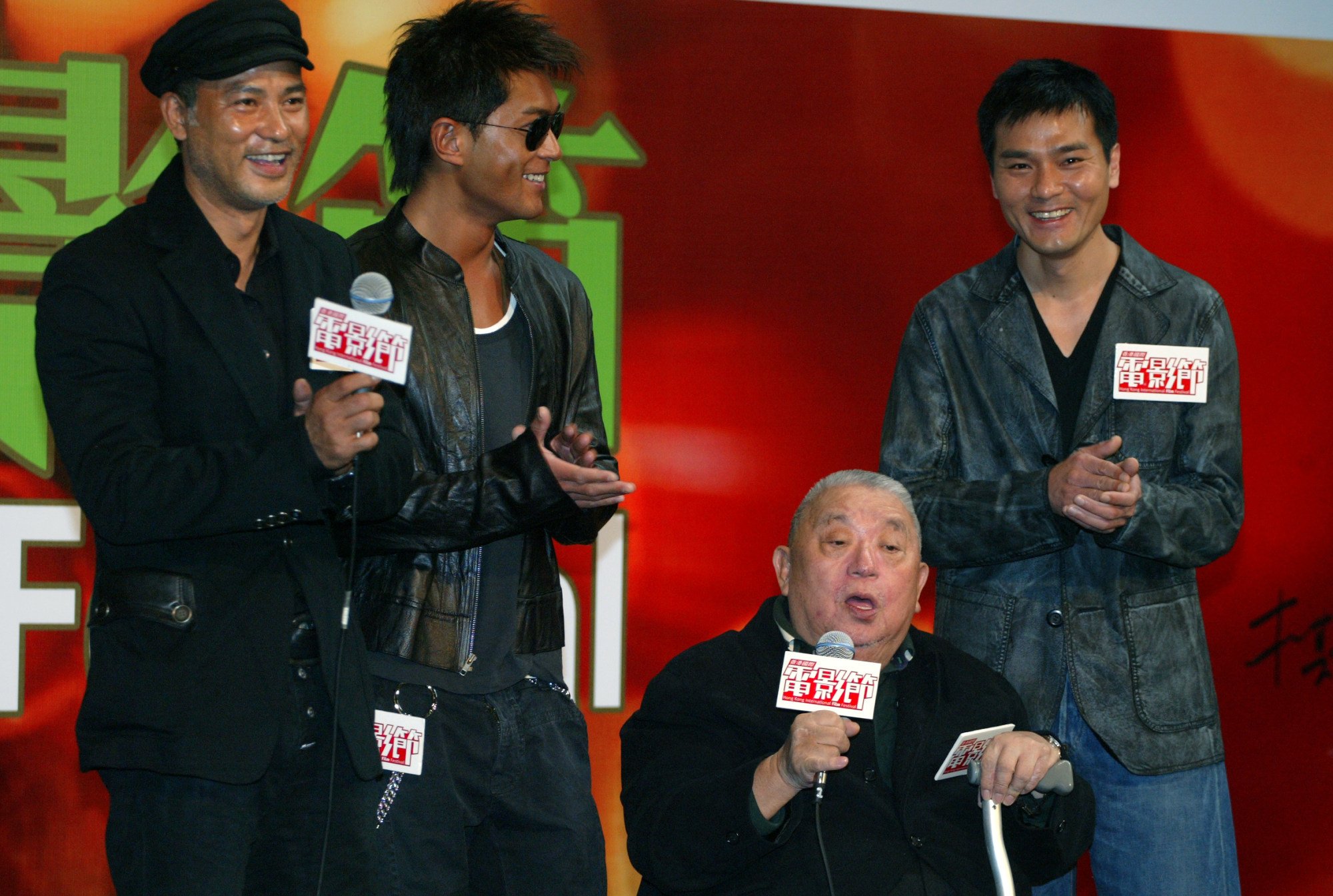
The Godfather meets Japanese yakuza films in Johnnie To’s Election and Election 2, with Hong Kong gangsters portrayed as suave, yet violent and deceitful
- In Johnnie To’s first Election film, Simon Yam plays Lok, a suave leader who vies with Tony Leung’s Big D for leadership of the triads – Hong Kong crime gangs
- Asian film expert Frank Djeng says Election and Election 2 showed the hypocrisy of refined yet ruthless gangsters, but were criticised for glorifying criminals
Election, directed by Johnnie To Kei-fung in 2005, is unusual for a film about triads, as there are no action scenes. Instead, the film focuses on the internal dramas of a group of crime bosses in Hong Kong as they elect their leader.
Simon Yam Tat-wah plays a cool-headed gangster who’s competing for the leadership with a violent rival played by Tony Leung Ka-fai.The director shows that, although the bosses seem refined, they are violent and deceitful underneath.
Election 2 (2006) took up the story of young triad Jimmy (Louis Koo Tin-lok), and showed it was impossible for him to leave the triads even though he wanted to go straight. The film became political by weaving police corruption in mainland China into the story.
The Post asked expert on Asian film Frank Djeng, who provides the commentary for Chameleon Films’ forthcoming international release of both movies, about To’s films.
Election is unusual, as it’s a triad film without any action. What was Johnnie To aiming for?
There’s not a lot of action in the first one and ... not much violence in it, although there is violence in the sequel.
How Chingmy Yau shocked Hong Kong and became one of its biggest sex symbols
It’s inspired by The Godfather – Johnnie To took the idea behind that and added a local flavour to it. He shows a lot of the triad rituals, and their meetings, and he shows how their culture and tradition goes back to the Qing dynasty [in Chin], and has been passed down from that time.
He depicts the triads as living in a parallel society with their own laws.
In the film, they have developed a system of government for their own society, in which they elect leaders every two years.
Money Heist: Korea Part 2 – Netflix action thriller begins to ring hollow
It is ironic, because Hong Kong does not have an election for the chief executive (the head of its government), who is not chosen by the people. But here, the triads choose someone to lead them by having an election!
Was he aiming to show that in spite of their codes of honour, they will do anything for money and power?
To is trying to look how the triads, whose codes go back a long way, have adapted to the world of capitalism.

In the second film, Jimmy (Louis Koo) just wants to make money – he wants to become a businessman, and he tries very hard to distance himself from triad society. But he realises that if he becomes ruthless, and betrays people, he will make more money. In a way, that represents the changes in their society.
Simon Yam, as the gang boss Lok, acts refined but is brutal underneath it all.
Simon Yam’s character Lok seems nice, and he is rational and well educated. But inside, he is only interested in having power, and he is ruthless in pursuit of it. His fellow triad brothers think he is too weak to be the leader. But underneath he has a huge appetite for power.

The representation of the triads is very similar to the way yakuza are portrayed in Japanese crime films. Were such films an influence?
I think so, as Johnnie To is a big fan of Japanese films. Yakuza films were a big influence on Election – all those gang meetings are a standard part of yakuza films.
Also, male dominance is part of yakuza films, and the women are always kept on the sidelines. There are no women in the triad society in Election.
Why ‘Christmas just doesn’t feel like Christmas’ without Charlie Brown
Although Election does not glamorise triads in the same way as, say, the Young and Dangerous films, it was still criticised in Hong Kong for glorifying them. Why was that?
Because it depicted them differently to the usual triad films. Here you have older triads dressed in nice clothes, and they are educated – they don’t swear, and they don’t talk like gangsters. In fact, they talk and look like businessmen. They are presentable.
So in a way, the film says if you are a triad, you can be rich, you can dress nicely, and you can have a good family.

Is that why it got a Category III [adults only] rating?
Anything that purports to show the inner workings of the triads gets a Category III rating. They don’t want kids to see it.
Exiled [To’s 2006 triad film] got a Category III rating simply for featuring a reverse handshake, which is supposed to be a triad handshake. That shot was cut when the film was shown in Hong Kong cinemas, but it was restored for the Hong Kong video release.

Simon Yam has portrayed numerous gangsters, but this is a much more subtle variation for him.
Yam has always been a charismatic actor, he’s very suave and debonair. In his other films, he is very much a typical triad, swaggering, bold and exaggerated, but here he is subtle.
He usually portrays a caricature of a triad leader, but here [as Lok] he is the opposite – he wears khakis, a polo shirt, his hair is greying at the temples … he could almost be mistaken for a CEO, or a lawyer.
Lok’s calm demeanour contrasts with the explosive violence of Tony Leung Ka-fai’s character Big D, his rival for the leadership.
To was trying to depict a different kind of relationship between his characters with Yam and Leung.

But that is not true in Election, where you have two contrasting personalities. Yam is calm, but Leung is an alpha male. His performance really shows how hot-headed Big D is – he’s like Al Pacino in Scarface.
The films are often described as political, especially as the sequel shows police corruption in mainland China. Do you think To was making a political comment?
The first film is not political but the second one definitely is. In Election 1, he was just trying to tell a triad story, although you can see a political and moral subtext is taking shape, and this comes out more in the sequel.

A special version of Election was shot for mainland Chinese release. How was it different?
As for Election 2, it was never passed for release on the mainland, as the authorities claimed it was too violent. But as the end of the first film had been changed, the sequel would not have made sense there anyway.
Wasn’t there a plan for an Election 3?
I heard in 2017 that the script had been written, and it was politically even more extreme than Election 2. But they felt it would be impossible to make it in a Hong Kong setting.
They considered making it set abroad, but then it would not have been an Election film. The new film rules don’t allow you to criticise the police, so it could not be made today.
In this regular feature series on the best of Hong Kong cinema, we examine the legacy of classic films, re-evaluate the careers of its greatest stars, and revisit some of the lesser-known aspects of the beloved industry.
